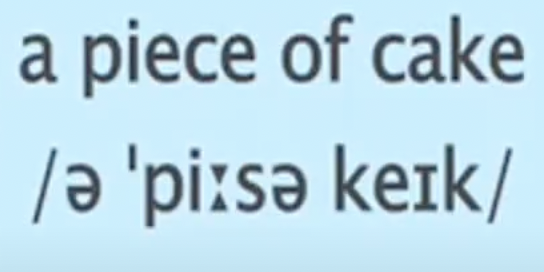Some sentences autumn break
We'll take a look some
That is where English comes in
English is no exception
Have come up with 提出
Rushed
Discover
How can I ever repay you
Don’t beat around the bush
explaining
easier said than done
don't judge a book by its cover
It is fair to say ~~
Keep up to
But out of all the available methods
Density noun
Destined adj
Be slowed down
Over here
lies ahead
Would I be talking about something
Hopefully soon
take a close look 我们仔细看看
small talk 闲聊
Between people and involoved
There are many popular topics of conversation when it comes using small-talk
Isn't it a lovely weather
We are having these day
Forecast
Reasons being
throw the book at sb 狠狠责罚(某人) ;给……以最严厉的惩罚
If no one has anything else to add, let’s wrap up the meeting
定冠词后接形容词表示同一类人或物或抽象概念,作主语谓语复数
who和whom的区别和he和him的区别是一样:
who可以理解为主格,做主语;whom可以理解为宾格,做宾语。
To whomcan we turn in case of an emergence?
注意:介词后一定要用whom:
可用who代替whom:
Whocame to the party last night?
昨晚都谁来参加聚会了?
Who/Whomare you going to invite to your party?
You have great taste in furniture
I really like what you have done with this house
Stylish == fashionable
While perhaps not as popular as CSS selectors, XPath expressions offer more power because besides navigating the structure, it can also look at the content.
While perhaps not as popular as CSS selectors, XPath expressions offer more power because besides navigating the structure, it can also look at the content.
The best way to learn is with examples, and Scrapy is no exception.
had better
1. 意思是“应该;最好”;
You had better study hard for your entrance exam.
You had better see the doctor about your cough.
2. 后接不带 to 的不定式:had better do sth;
you had better be careful.
It’s five o’clock. I’d better go now before the traffic gets too bad.
3.其用法相当于情态动词,动词 had 没有人称或数的变化。
She’d better get here soon or she’ll miss the opening ceremony.
4.常用来提出建议,语气较强,我们一般强调如果不这样做会有不好的后果。
或表示迫切的希望,警告等。
We'd better take something to eat or we will be hungry later.
You had better lock the door before you leave.
You had better unplug the toaster before you try to clean it.
被动
主动态表示句子的主语是行为的发生者或执行者。被动态表示句子的主语是行为的承受者。如果需要体现动作的发生者,需要借助by,谓语的时态要用“be的相应时态+过去分词”的来表。
看不懂没关系,给个例子就懂了。
[举例]过去时态下的被动语态
主动态:The teacher gave me the book.
被动态:I was given the book by the teacher.
从这个例子中可以看出,老师给我一本书,老师是动作的发生者,我是动作的承受者。所以在主动态中,主谓宾依次排放。
但当在被动态中。宾语放在了名首,所以宾语要承担动作。谓语就要发生相应的变化。由原来的gave改变为was given(记忆法:被动态中,一般现在时is/are + done,过去时was/were + done,将来时 shall/will be + done)。
[举例]现在完成时态下的被动语态
主动态:We have finished our work.
被动态:Our work has been finished.
(记忆法:被动态中,现在完成时has/have been + done,过去完成时had been + done,将来完成时 shall/will have been + done)。
学到这里,不知大家有没有注意到,have been done 又出现了。与今天主题句They have been married for more than 10 years.中have been married的句型完全一样。所以主题句使用的是被动句?
答案是:否,这也是大家在学习被动句后,特别要注意的一点。
●“be + 过去分词”不一定就是被动态
[例句]
The glass plate is broken. 这玻璃板是破的。(作表语)
The glass plate was broken by him. 这玻璃板(当时)被他打碎了。(被动态)
[例句]
The book is written well. 这本书写得很好。(作表语)
The book has been written by our teacher. 这本书已经由我们的老师写成。(被动态)
拿今天的主题句来进行解析。
They have been married for more than 10 years.
简短点来说“他们结婚了”
They are married.
“他们已经结婚了”
They have been married.
所以今日主题句的句型属于表语形式,并不是被动态哦。
words
examine
scar scary scarf (scare v)
apparnently, the two things that people are most afraid of
when it comes to making a speech
used to do和be used to doing的含义不同,be used to doing表达习惯于做某事的意思;used to所表示的意思是“过去常常做某事”,强调过去发生的事,所以一般用于描述发生在过去的事情。
Get used to :开始习惯于(从不习惯到习惯的一个过程)
用法:Get used to V-ing/sth
这里的to也是充当介词,因此后面要有动名词或者名词
The food here is not so tasty but you will get used to that.
这里的伙食不怎么样,但你会慢慢习惯的。
Be used to doing和get used to doing主要的不同在于时间节点上,be used to doing一般是用在习惯之后,是”已经“习惯了,而get used to doing是习惯之前,”还没“习惯,要花时间去习惯,下面这个例句应该可以很好地说明两个词组的区别。
Tom wasn’t used to noise. It took him some time to get used to it.
I am well on the way to improving vocal technique
get accustomed
use you body as a way of making the speech more vivid and clear
gestures
fantastic
fascinating
usage
quite : The preformance is quite well
quiet : They lead a quiet life
generous
gorgeous
prosperous
prestigious
corn
scorn
concorn
delicate
dedicate
deduce
virtue virus
stimulate 刺激 imitate 模仿
There is no viable alterntive
where have you been
where did you just go
it has been tow months since I arrived the Budapest
so-called
we examine the sacry process
crowd
of them all 表示其中一个或几个
all of them 表示所有
off to 将要去
how come 为什么;怎么会这样
how come是美国人常用的表达,意思是怎么会、为什么会这样。外国人不用how come表示怎么来的,怎么来的我们可以说,how do you get here。
how come的意思和why基本一致,但又有几点区别。
①how come一般适用于发生了什么事的场合。别人对你说how come,表示他不理解事情是怎么发生的,很希望得到你的解释。相比why,how come可以表达好奇和震惊的心情,语气要更加强烈。
②同时,how come更口语化,多用于生活交际。而why书面和口语都可以使用,使用范围更广。
③还有一个很重要的区别,大家千万要记住,why后面接的是疑问句,但是how come后面接的是陈述句的语序,千万不要搞错了。
while others will hardly ever laugh at all
Have you ever been caught


